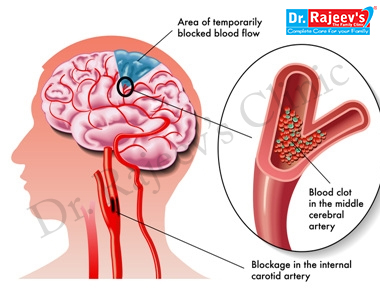

Vertigo is not a disease it is actually a symptom with a sensation that the person or the room is spinning. Vertigo is an illusion of motion and is a problem seen increasingly in people as they age. It is usually temporary and a sign of some other problem or condition. Vertigo is a type of dizziness.
There are several different types of vertigo that are considered conditions such as Benign paroxysmal positional vertigo, central vertigo, migrainous vertigo, peripheral vertigo and physiologic vertigo. Vertigo is one of the most common complaints for which people seek medical advice. See the Vertigo LearniVertigo implies that there is a sensation of motion either of the person or the environment. This should not be confused with symptoms of light headedness or fainting.

Vertigo can be caused by
1. Problems in the brain or the inner ear :- Benign paroxysmal positional vertigo (BPPV) is the most common form of vertigo and is characterized by the sensation of motion initiated by sudden head movements or moving the head in a certain direction. This type of vertigo is rarely serious and can be treated.
2. Inflammation within the inner ear (labyrinthitis) :- It is characterized by the sudden onset of vertigo and may be associated with hearing loss. The most common cause of labyrinthitis is a viral or bacterial infection.
3. Meniere's disease :- It is composed of a triad of symptoms: episodes of vertigo, ringing in the ears, and hearing loss. People have the abrupt onset of severe vertigo, fluctuating hearing loss, as well as periods in which they are symptom-free.
4. Acoustic neuroma :- Type of tumor that can cause vertigo. Symptoms include vertigo with one-sided ringing in the ear and hearing loss.
5. Decreased blood flow to the base of the brain : - Bleeding into the back of the brain (cerebellar hemorrhage) is characterized by vertigo, headache, difficulty walking, and inability to look toward the side of the bleed. The result is that the person's eyes gaze away from the side with the problem. Walking is also extremely impaired.

The duration of symptoms can be from minutes to hours, and symptoms can be constant or episodic. The onset may be due to a movement or change in position. It is important to tell the doctor about any recent head trauma or whiplash injury as well as any new medications the patient is taking.
The patient may have hearing loss and a ringing sensation in the ears.
The patient might have visual disturbances, weakness, difficulty speaking, decreased level of conscious
COCCULUS : Very effective medicine for vertigo, particularly when the person suffers from it while riding or sitting up in moving a car or train. Also, useful when vertigo complaints are accompanied by vomiting, nausea, and sense of emptiness in head.
GELSEMIUM : Very useful medicine for vertigo with dizziness, heaviness in eyelids and head and dim vision resulting due to vertigo.Effective remedy when the discomfort due to vertigo begins in the back of head and then spreads from that point.
PULSATILLA : Very effective medicine for women suffering from vertigo due to delayed or suppressed menses.There is sensation that objects around the persons are revolving in a circle.
BRYONIA-Very : Effective medicine to treat gastric vertigo which is accompanied with nausea. Given for dizziness which aggravtes when getting up out of bed in the morning. There is discomfort resulting due to vertigo when moving or changing the position of head and opening eyes.
RL-73